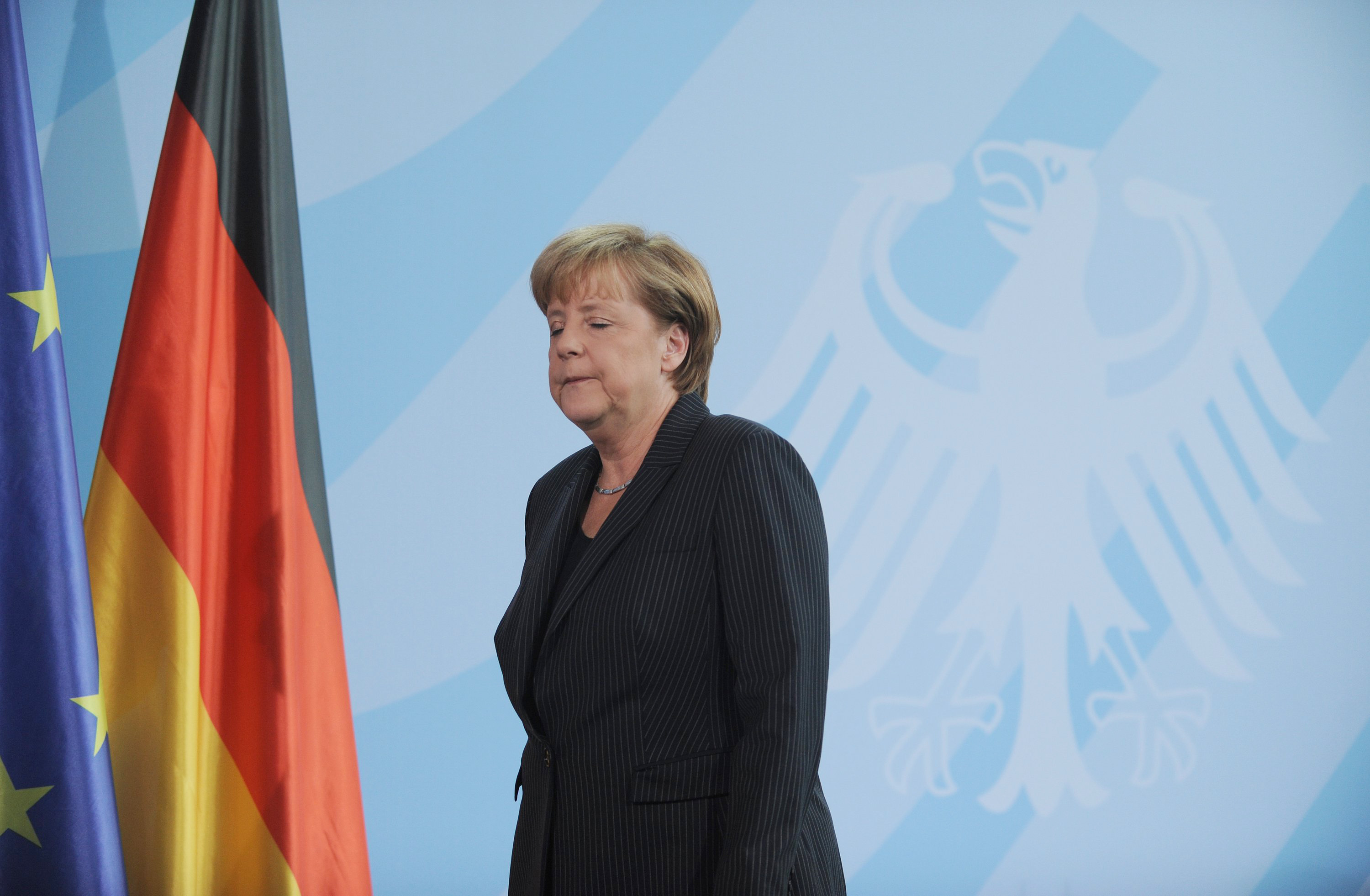 Storms have gathered over Angela Merkel’s summer. The FT reports that she faces a revolt in the Bundestag over the recent Greek debt deal. Some members of the
Christian Democrats, her own party, and the Free Democrats, the junior partner in her governing coalition, will oppose the proposed expansion of the EFSF. Disparate political dissent has solidified
around the European Central Bank’s decision to recommence buying Spanish and Italian government bonds, which will devalue sacrosanct German bonds. This is just one subject
covered in a typically extensive Vanity Fair examination of current German attitudes to politics,
money and the Eurozone.
Storms have gathered over Angela Merkel’s summer. The FT reports that she faces a revolt in the Bundestag over the recent Greek debt deal. Some members of the
Christian Democrats, her own party, and the Free Democrats, the junior partner in her governing coalition, will oppose the proposed expansion of the EFSF. Disparate political dissent has solidified
around the European Central Bank’s decision to recommence buying Spanish and Italian government bonds, which will devalue sacrosanct German bonds. This is just one subject
covered in a typically extensive Vanity Fair examination of current German attitudes to politics,
money and the Eurozone.
Merkel’s political crisis has grown from the emerging resentment in Germany about the cost of keeping the Euro’s more dissolute members in clover. This is allied to the universal difficulties of re-imposing fiscal discipline on public finances. These factors have combined to shake the popularity of the two governing parties. Merkel’s problems are well documented, but the Free Democrats’ polling has collapsed from a mere 15 per cent to a negligible 3 per cent.
Merkel is confident that she will quell this revolt, in part because the major opposition parties support the Eurozone’s plan. Indeed, the Social Democrats insist that the members should coalesce entirely. But the political threat to Merkel is real enough and it has far reaching consequences for the monetary union’s alleged creep towards fiscal and political union.
The Free Democrats are demanding that the EFSF does not become a permanent feature on the European landscaped, as it is scheduled to do after 2014. Then there is the Christian Democrat’s long-held suspicion of Eurobonds; on the grounds that their introduction would impede the German economy and require a delicate change to the German constitution. Merkel has resisted the introduction of Eurobonds so far, aided by France of late. But they will be on the agenda when European leaders convene in the autumn; and increasingly it seems that Merkel will have to comply with plans for closer union or the euro will die, especially given the convulsions on European stock exchanges earlier today.







Comments